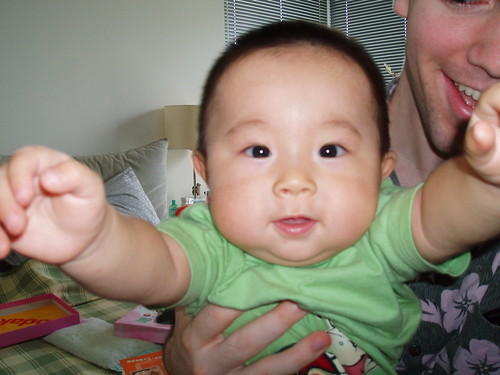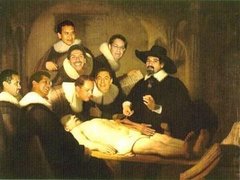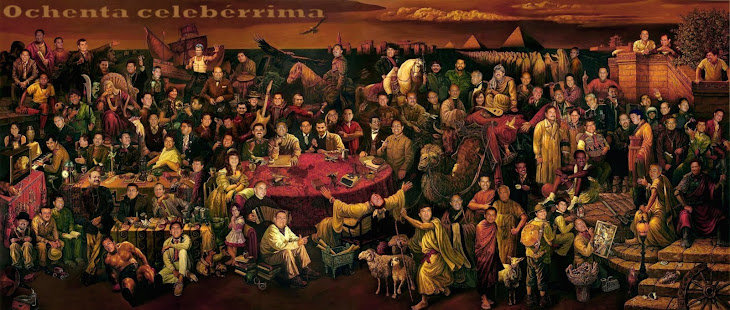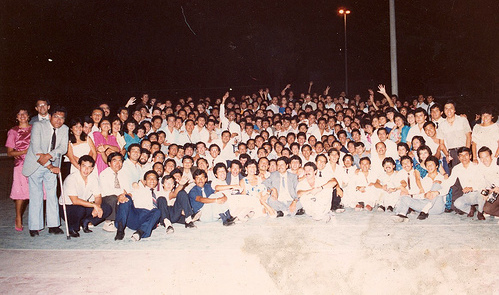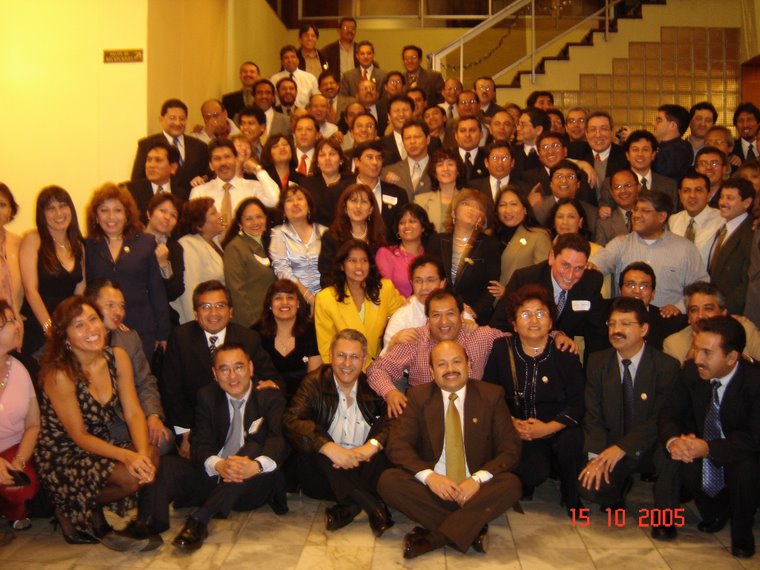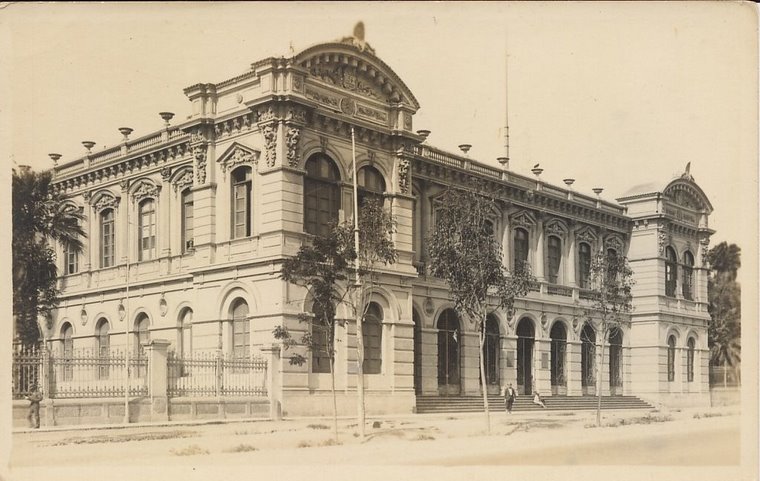
SOCIOS EN SALUD: Partners in Health (PIH)
Paul Farmer: Medico de los pobres
Paul Farmer nació en la pobreza, su numerosa familia pasó parte de su niñez viviendo en un autobús transformado en vivienda, en un campamento de casas remolque en la Florida y también en una tienda de campaña y en una casa flotante. Con todo, Farmer ha llegado a ser una figura importante en el suministro de atención de salud a gente de todo el mundo.
En 1987, durante su época de estudiante de medicina en Harvard, Farmer creó una fundación en Boston, Partners in Health (PIH), con un condiscípulo, Jim Yong Kim, y estableció una clínica de salud en Haití. La clínica, que presta servicios a aproximadamente 100.000 personas, ha llegado a ser un modelo para clínicas similares que luchan contra las enfermedades y que ofrecen una amplia variedad de servicios sociales y de auto-superación en áreas pobres de todo el mundo. La fundación Partners in Health describe sus metas así: "Llevar los beneficios de la atención médica moderna a quienes más los necesitan y servir de antídoto a la desesperación". El modelo PIH tiene unidades móviles de análisis y pruebas, programas de capacitación para los trabajadores de salud, clínicas, escuelas y farmacoterapias complejas a domicilio, así como investigación de enfermedades infecciosas. Las innovaciones ideadas por Farmer y sus socios con respecto a la dosificación de los medicamentos, han reducido la tasa de mortalidad por tuberculosis y SIDA resistente a los medicamentos hasta en lugares remotos como Siberia y Perú.
"Un médico de los pobres", es la frase que utilizó Farmer para describirse a sí mismo en el libro de Tracy Kidder Mountains Beyond Mountains, todo un éxito de ventas. Farmer espera seguir adelante en la reducción de hambrunas, enfermedades y mortalidad innecesarias en el mundo. "Creo", dice, "que podemos convencer a la gente de que no está bien que los enfermos indigentes del mundo mueran sin atención médica. Podemos cambiar eso".
En 1987, durante su época de estudiante de medicina en Harvard, Farmer creó una fundación en Boston, Partners in Health (PIH), con un condiscípulo, Jim Yong Kim, y estableció una clínica de salud en Haití. La clínica, que presta servicios a aproximadamente 100.000 personas, ha llegado a ser un modelo para clínicas similares que luchan contra las enfermedades y que ofrecen una amplia variedad de servicios sociales y de auto-superación en áreas pobres de todo el mundo. La fundación Partners in Health describe sus metas así: "Llevar los beneficios de la atención médica moderna a quienes más los necesitan y servir de antídoto a la desesperación". El modelo PIH tiene unidades móviles de análisis y pruebas, programas de capacitación para los trabajadores de salud, clínicas, escuelas y farmacoterapias complejas a domicilio, así como investigación de enfermedades infecciosas. Las innovaciones ideadas por Farmer y sus socios con respecto a la dosificación de los medicamentos, han reducido la tasa de mortalidad por tuberculosis y SIDA resistente a los medicamentos hasta en lugares remotos como Siberia y Perú.
"Un médico de los pobres", es la frase que utilizó Farmer para describirse a sí mismo en el libro de Tracy Kidder Mountains Beyond Mountains, todo un éxito de ventas. Farmer espera seguir adelante en la reducción de hambrunas, enfermedades y mortalidad innecesarias en el mundo. "Creo", dice, "que podemos convencer a la gente de que no está bien que los enfermos indigentes del mundo mueran sin atención médica. Podemos cambiar eso".
Premian a fundadores de ONG contra el SIDA
31 de octubre, 2005 La Fundación Conrad N. Hilton entregó hoy su premio anual de ayuda humanitaria a los fundadores de la organización no gubernamental (ONG) “Partners in Health”.
Jim Yong Kim, director del departamento sobre SIDA de la Organización Mundial de la Salud (OMS), y Paul Farmer, un médico estadounidense, recibieron el galardón dotado de millón y medio de dólares.Partners in Health fue establecida en 1987 para luchar contra el SIDA y la tuberculosis y comenzó su trabajo en las zonas más pobres de Haití.Más tarde amplió su trabajo a otros países como Perú, Rusia y Rwanda.Esta ONG ha colaborado con la OMS desde 1996 y logró cambiar la política del organismo que consideraba demasiado caro el tratamiento de tuberculosis resistente a los antibióticos en países en desarrollo, explicó el doctor Yong Kim.“Cuando Partners in Health comenzó con esta campaña sólo había algunas centenas de pacientes en el mundo que recibían tratamiento. Ahora hay muchos miles en 26 países”, puntualizó.Añadió que estas personas están siendo salvadas de una virtual sentencia de muerte gracias a la relación de Partners in Health con la OMS.El jurado del premio reconoció el trabajo innovador de esta ONG, que comprende no sólo la prevención y atención de las enfermedades sino también un cambio en las condiciones de vida que propician esos problemas de salud.
Peru / Socios En Salud
Since 1994, PIH’s sister organization in Peru, Socios En Salud (SES), has been treating disease and training community members to provide prevention and care for their neighbors in the shantytowns around Lima. Based in the northern Lima town of Carabayllo, SES is now Peru’s largest non-governmental healthcare organization, serving an estimated population of 700,000 inhabitants, many of whom have fled from poverty and political violence in Peru’s countryside. As a valued partner to Peru's Ministry of Health, SES has also had an impact on national policies for prevention and treatment of drug-resistant tuberculosis and HIV and provides important training and support to help implement those policies nationwide.
Drawing on PIH’s experience with community-based tuberculosis treatment in rural Haiti, SES has achieved remarkable success in confronting an epidemic of multidrug-resistant tuberculosis (MDR-TB) in the slums of Lima. In the process, SES has saved thousands of lives, has overturned assumptions that treatment of MDR-TB is too expensive and too complicated to succeed in poor communities, and has instigated major changes in national and global health policies. Today, SES is a global leader in clinical and operational research on MDR-TB. SES has forged a strong partnership with the Peruvian Ministry of Health and is now providing training and support to assist the Ministry in extending community-based directly observed therapy nationwide, not only for MDR-TB patients but for people infected with HIV.
While supporting national programs to combat TB and HIV, SES has maintained and expanded a wide range of primary care and social support services in the shantytowns of Lima. Socios En Salud’s main offices are housed in the three-story Father Jack Roussin Community Center, located in Carabayllo, in northern Lima. Project staff attend to patients under the supervision and guidance of the infectious-disease clinician at the Roussin Community Center, at the Hospital Sergio Bernales, at local public-health centers, and, most commonly, in patients’ homes.
A network of neighborhood clinics offers basic primary care in poor and isolated communities, including maternal and obstetrical care for women. The Salud Infantil ("Child Health") program brings health professionals to community clinics to offer treatment and regular checkups for children who would not otherwise have access to medical care.
SES also provides food baskets, transportation, lodging and other social support for impoverished patients whose needs have been confirmed by an extensive interview and evaluation. And it helps women in the community earn an income as members of Mujeres Unidas ("Women United"), a cooperative workshop that participates in crafts fairs in Peru and has sold handicrafts as far away as the United States, Japan and Switzerland.
Dr. Paul Farmer
(born October 26, 1959) is an American professor and physician, currently the Presley Professor of Medical Anthropology at Harvard University and an attending physician at Brigham and Women's Hospital in Boston, Massachusetts. His medical specialty is Infectious Diseases. Farmer is one of the founders of Partners In Health (PIH), an international health and social justice organization. His work is the subject of Tracy Kidder's 2003 book Mountains Beyond Mountains:The Quest of Dr. Paul Farmer, A Man Who Would Cure the World.
In 1987, Farmer, along with Thomas J. White and Todd McCormack, co-founded Partners In Health (PIH) , a international health and social justice organization. PIH began in Cange in the Central Plateau of Haiti and has developed into a worldwide health organization. The PIH hospital in Haiti provides free treatment to patients. PIH helps patients living in poverty to obtain effective drugs to treat TB and AIDS.
In addition to his hospital in Haiti, Farmer oversees projects in Russia, Rwanda, and Peru. "Dr. Farmer is known for his support of a 'preferential option for the poor,' a central tenet of Catholic Liberation Theology. His approach has its basis in ethnographic analysis and real world practicality."
Mountains Beyond Mountains: The Quest of Dr. Paul Farmer, a Man Who Would Cure the World by Tracy Kidder details Farmer's work in Haiti, Peru and Russia, as well as his efforts to balance clinical and academic responsibilities with having a family of his own.
Partners In Health (PIH)
is a Boston, Massachusetts-based non-profit health care organization dedicated to providing a "preferential option for the poor". Founded in the 1980s by Dr. Paul Farmer, Thomas J. White, and Todd McCormack, joined later by Ophelia Dahl and Dr. Jim Kim, PIH strives to bring the best of western medicine to the poorest of the poor by establishing long-term partnerships with local sister organizations. The people of Haiti, Peru, Russia, and Rwanda have seen the greatest portion of their work, especially in the treatment of tuberculosis and HIV/AIDS. PIH also has clinics in Lesotho and Malawi, as well as supported projects in Chiapas, Mexico and Guatemala. Joia S. Mukherjee, MD, MPH is the medical director of Parterns in Health.
